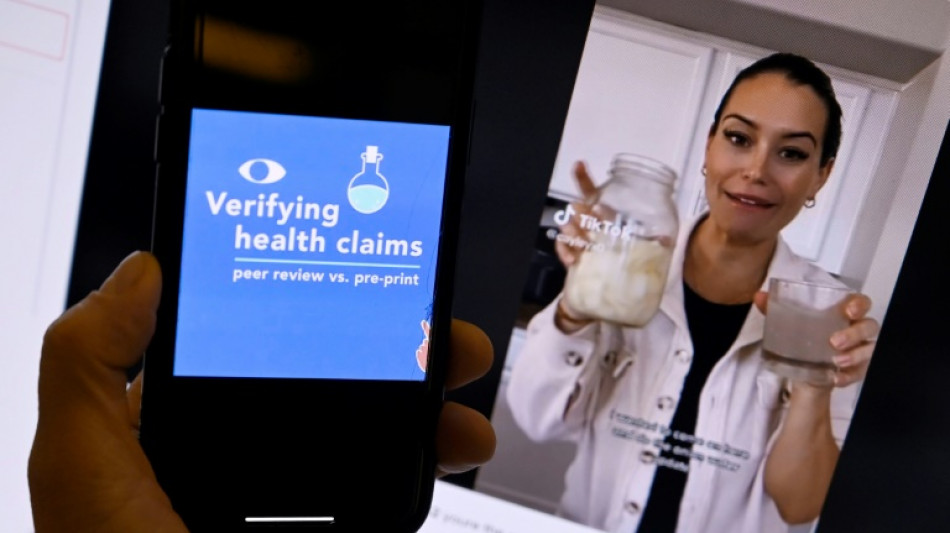
-
 Stocks fall as tech valuation fears stoke volatility
Stocks fall as tech valuation fears stoke volatility
-
US Olympic body backs LA28 leadership amid Wasserman scandal

-
 Gnabry extends Bayern Munich deal until 2028
Gnabry extends Bayern Munich deal until 2028
-
England captain Stokes suffers facial injury after being hit by ball

-
 Italy captain Lamaro amongst trio set for 50th caps against Scotland
Italy captain Lamaro amongst trio set for 50th caps against Scotland
-
Piastri plays down McLaren rivalry with champion Norris

-
 ECB holds interest rates as strong euro causes jitters
ECB holds interest rates as strong euro causes jitters
-
Spain, Portugal face floods and chaos after deadly new storm

-
 EU close to sealing trade deal with Australia
EU close to sealing trade deal with Australia
-
German Cup final to stay in Berlin until 2030

-
 What does Iran want from talks with the US?
What does Iran want from talks with the US?
-
Taming the lion: Olympians take on Bormio's terrifying Stelvio piste

-
 Wind turbine maker Vestas sees record revenue in 2025
Wind turbine maker Vestas sees record revenue in 2025
-
Italy's Casse tops second Olympic downhill training

-
 Anti-doping boss 'uncomfortable' with Valieva's coach at Olympics
Anti-doping boss 'uncomfortable' with Valieva's coach at Olympics
-
Bitcoin under $70,000 for first time since Trump's election

-
 'I am sorry,' embattled UK PM tells Epstein victims
'I am sorry,' embattled UK PM tells Epstein victims
-
England's Brook predicts record 300-plus scores at T20 World Cup

-
 Ukraine, Russia swap prisoners, US says 'work remains' to end war
Ukraine, Russia swap prisoners, US says 'work remains' to end war
-
Wales' Rees-Zammit at full-back for Six Nations return against England

-
 Sad horses and Draco Malfoy: China's unexpected Lunar New Year trends
Sad horses and Draco Malfoy: China's unexpected Lunar New Year trends
-
Hong Kong students dissolve pro-democracy group under 'severe' pressure

-
 Germany claws back 59 mn euros from Amazon over price controls
Germany claws back 59 mn euros from Amazon over price controls
-
Germany claws back 70 mn euros from Amazon over price controls

-
 VW and Stellantis urge help to keep carmaking in Europe
VW and Stellantis urge help to keep carmaking in Europe
-
Stock markets drop amid tech concerns before rate calls

-
 BBVA posts record profit after failed Sabadell takeover
BBVA posts record profit after failed Sabadell takeover
-
UN human rights agency in 'survival mode': chief

-
 Greenpeace slams fossil fuel sponsors for Winter Olympics
Greenpeace slams fossil fuel sponsors for Winter Olympics
-
Greenpeace slams fossel fuel sponsors for Winter Olympics

-
 Kinghorn, Van der Merwe dropped by Scotland for Six Nations opener
Kinghorn, Van der Merwe dropped by Scotland for Six Nations opener
-
Russia says thwarted smuggling of giant meteorite to UK

-
 Salt war heats up in ice-glazed Berlin
Salt war heats up in ice-glazed Berlin
-
Liverpool in 'good place' for years to come, says Slot

-
 Heathrow still Europe's busiest airport, but Istanbul gaining fast
Heathrow still Europe's busiest airport, but Istanbul gaining fast
-
Highest storm alert lifted in Spain, one woman missing

-
 Shell profits climb despite falling oil prices
Shell profits climb despite falling oil prices
-
Pakistan will seek govt nod in potential India T20 finals clash

-
 China shuns calls to enter nuclear talks after US-Russia treaty lapses
China shuns calls to enter nuclear talks after US-Russia treaty lapses
-
German factory orders rise at fastest rate in 2 years in December

-
 Nigeria president deploys army after new massacre
Nigeria president deploys army after new massacre
-
Ukraine, Russia, US start second day of war talks

-
 Nepal's youth lead the charge in the upcoming election
Nepal's youth lead the charge in the upcoming election
-
Sony hikes forecasts even as PlayStation falters

-
 Rijksmuseum puts the spotlight on Roman poet's epic
Rijksmuseum puts the spotlight on Roman poet's epic
-
Trump fuels EU push to cut cord with US tech

-
 Fearless talent: Five young players to watch at the T20 World Cup
Fearless talent: Five young players to watch at the T20 World Cup
-
India favourites as T20 World Cup to begin after chaotic build-up

-
 Voter swings raise midterm alarm bells for Trump's Republicans
Voter swings raise midterm alarm bells for Trump's Republicans
-
Australia dodges call for arrest of visiting Israel president


Waste of tears -- fake 'onion water' flu cure exposes disparities
If it tastes this bad, it must be good for you?
Homemade, tear-inducingly strong onion "cures" for flu are the latest medical misinformation spreading on TikTok -- a sign, analysts say, that affordable, evidence-based health care is beyond the reach of many Americans.
Videos extolling the pungent concoction –- made by soaking chopped raw onions in water –- as a miracle cure have garnered tens of millions of views on the influential app despite no scientific proof to support the claim.
The videos have gained traction as the United States faces a so-called "tripledemic" of influenza, Covid-19 and RSV that has put a strain on health services.
Onions in reasonable quantities are not considered harmful –- except for the foul breath –- but health experts warn that such videos promoted a blind belief in simple home remedies that could compromise public health.
"Onions aren't going to hurt anybody, but if somebody is sick, they should seek actual medical attention," Katrine Wallace, an epidemiologist and assistant professor at the University of Illinois Chicago, told AFP.
"I am afraid that people will just drink onions and not seek medical care (and) they could spread Covid or the flu in the community."
The pseudoscience has found many takers, with comments under the videos filled with declarations like "this worked for me!"
That, Wallace said, suggested the so-called "placebo effect," with the dubious onion treatment getting the credit after the virus naturally ran its course.
- Miracle cure? No -
The trend illustrates how TikTok is flooded with unqualified influencers who peddle misinformation, from vaccine and abortion-related falsehoods to health myths –- often to boost engagement and views -- in what experts say can have a serious impact on medical decisions.
In one of the most popular TikTok videos, which garnered over 2.5 million views, one woman -- whose profile did not mention her qualifications and described her only as a "child of mother nature" -- zealously promoted onion water.
For greater healing effects, she implored her viewers to ferment the concoction for hours to make it more "potent."
"We love a miracle cure and for some reason we seem to think that the more painful a remedy is to consume, the more magic it will work," Abbie Richards, a disinformation researcher and fellow with the Accelerationism Research Consortium, told AFP.
"Simple solutions for complex problems frequently perform well in engagement-driven algorithms like TikTok's. Particularly when those solutions are cheap and accessible in areas where evidence-based healthcare is not."
A TikTok spokesman told AFP the platform removes content that qualifies as medical misinformation that is "likely to cause significant harm."
The onion water videos, he added, did not cross that threshold of "significant harm" and were therefore left untouched.
- Millions without medical insurance -
That approach, many experts say, underscores the challenge facing social media platforms of finding ways to eliminate misinformation without giving users the impression that they were trampling on free speech.
Richards cautioned that "excessive moderation" in the case of onion water videos could backfire and "encourage narratives that the truth of affordable medicine is being intentionally hidden."
A more effective approach, she said, would be for TikTok to ensure accurate health information is "available, accessible, and engaging."
"Whether TikTok should take down videos about benign but useless remedies, that's not for me to say," Valerie Pavilonis, an analyst at the misinformation watchdog NewsGuard, told AFP.
"Still, even if a supposed remedy like drinking onion water to solve sinus problems doesn't directly hurt you, it could make you wrongly think that you are treating the problem."
The popularity of the videos reflected what Richards called "systemic failures" in health care.
In a country with expensive medical care, data from the Center for Disease Control and Prevention shows roughly 30 million Americans, or nine percent of the population, have no health insurance.
Millions of other Americans are "underinsured", with their coverage not providing them affordable healthcare, according to the nonprofit Commonwealth Fund.
"It's very easy for us to say: 'Remember to talk to your doctor about medical treatments,'" Richards said.
"But I would expect that a society with limited access to health care, an overburdened health care system, and a generally confused approach to the newest wave in illness, might start drinking onion water or putting garlic in their ears."
B.Khalifa--SF-PST




